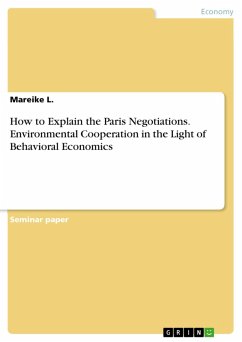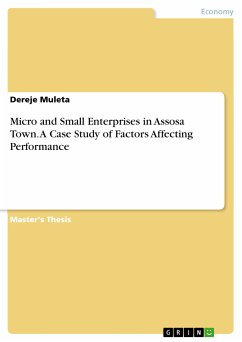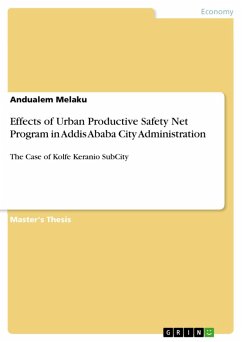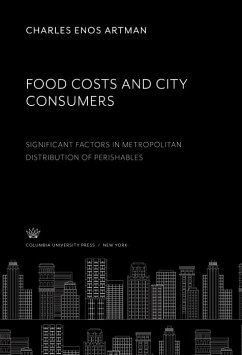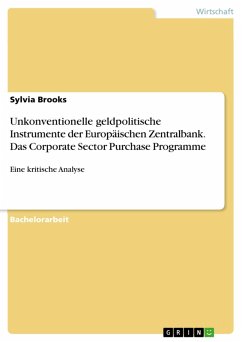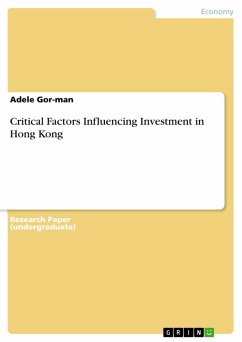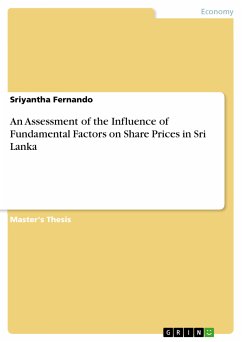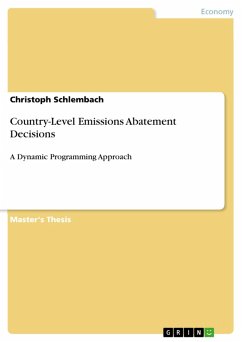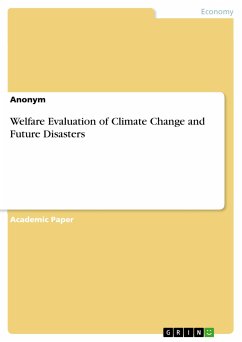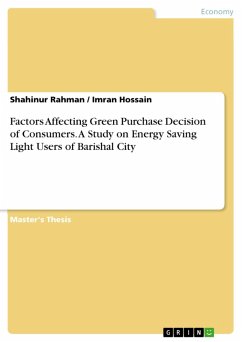
Factors Affecting Green Purchase Decision of Consumers. A Study on Energy Saving Light Users of Barishal City (eBook, PDF)
Sofort per Download lieferbar
Statt: 18,95 €**
16,99 €
inkl. MwSt. und vom Verlag festgesetzt.
**Preis der gedruckten Ausgabe (Broschiertes Buch)
Alle Infos zum eBook verschenkenWeitere Ausgaben:

PAYBACK Punkte
0 °P sammeln!
Master's Thesis from the year 2018 in the subject Economy - Environment economics, grade: 4.00 out of the scale 4.00, , language: English, abstract: Climate changes and associated impacts make people think about changing their traditional consumption patterns and go for purchasing green products to make this earth livable for the future generation. The study aimed at verifying the factors determining green purchase decision of energy saving light users of Barishal city. A total of 200 (two hundred) respondents participated in the study who are only from Barishal city and use energy-saving ligh...
Master's Thesis from the year 2018 in the subject Economy - Environment economics, grade: 4.00 out of the scale 4.00, , language: English, abstract: Climate changes and associated impacts make people think about changing their traditional consumption patterns and go for purchasing green products to make this earth livable for the future generation. The study aimed at verifying the factors determining green purchase decision of energy saving light users of Barishal city. A total of 200 (two hundred) respondents participated in the study who are only from Barishal city and use energy-saving lights. In this study, the author employed the judgmental sampling technique to collect responses from the participants through a self-administered questionnaire. Structural equation modeling was employed to analyze the empirical data and test the proposed hypotheses of the study via AMOS 23. The findings of the study revealed that perceived benefits (.41) have the most significant effect towards green purchase decision of energy saving light users in Barishal city. Marketing factors (.18) and environmental knowledge (.15) have also significant effect towards green purchase decision of energy saving light users. In this study, peer groups are considered as insignificant determinants for the consumers of energy saving lights. Marketing factors (.21) have a significant effect on environmental knowledge which is the mediating variable in the study. This paper will help marketers formulate effective strategies based on these results to reach target markets and contribute to the sustainable environment.
Dieser Download kann aus rechtlichen Gründen nur mit Rechnungsadresse in A, B, BG, CY, CZ, D, DK, EW, E, FIN, F, GR, HR, H, IRL, I, LT, L, LR, M, NL, PL, P, R, S, SLO, SK ausgeliefert werden.




